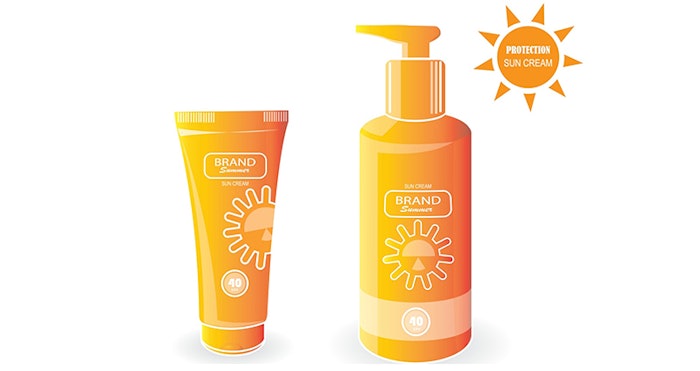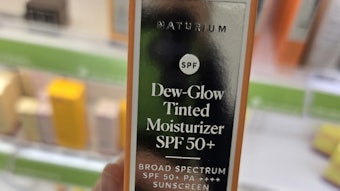
The debate regarding which type of sunscreen UV filters are best for consumers has been long and heated over the past years. Considering that the use of sunscreen is one of the most important anti-aging tools available, brands across the Personal Care Industry are seeing the need to add quality sunscreens that are appealing to consumers. Yet, while one side claims that organic filters provide better performance and skin feel, more and more Brands, and ultimately consumers, are turning to mineral sunscreen filters.
UV Filters
Organic UV filters are synthetic chemicals, which work by absorbing UV radiation. Some common organic filters include avobenzone, octinoxate and oxybenzone. Since they are also lightweight, they have the appealing trait consumer’s desire–underscoring the reason why they are widely utilized by many Sunscreen Brands.
Mineral UV filters include titanium dioxide (TiO2) and zinc oxide (ZnO). These act as “physical filters” and are capable of absorbing and scattering UV energy. Sunscreens formulated with both zinc oxide and titanium dioxide are capable of guarding against the full spectrum of ultraviolet radiation, including UVB (responsible for the majority of sunburn and skin cancer) and UVA (the main culprit in the photoaging that causes wrinkles and sunspots). While past versions of mineral filters were considered heavy, newer technology has ensured that sunscreens using these filters are both lighter and far sheerer than before.
FDA plus CARES: The Debate Intensifies
With the benefits of each filter type, it is easy to see why the debate regarding which wins in effectiveness, safety, and consumer-friendly use has arisen. Moreover, it is a debate that has only been compounded by the FDA, and subsequently, the CARES Act.
The FDA’s recently labeled the mineral filters, zinc oxide and titanium dioxide as GRASE, or Generally Regarded as Safe and Effective. On the other hand, the FDA provided no such designation to organic filters due to evidence that they may be absorbed into the bloodstream of users, leaving open the possibility of long-term health effects. This left organic filters in a gray area while giving mineral filters a seal of approval.
Just when the issue seemed ready for closure, the Coronavirus Aid, Relief, and Economic Security (CARES) Act, passed in March 2020, included provisions regarding the development and innovation of sunscreen ingredients. The act worked to maintain the “safety” status quo for both mineral and organic UV filters used in sunscreens currently on the market.
Bottom Line
Despite the on-going debate on which UV filter is best, the fact that two very different options are available in the market is a win for consumers. They gain peace of mind knowing that their dollars are being used to purchase the most effective anti-aging product on the market, one that can dramatically reduce the incidence of skin cancer.
Ask Sensient...
To learn more about formulating lightweight Sunscreen using mineral UV filters, and Sensient Cosmetic Technologies complementary line of surface treatments, SPF boosters, and dispersions, please click here. Click here to see formulation examples using mineral UV filters.
Disclaimer:
The above paid-for content was produced by and posted on behalf of the Sponsor. Content provided is generated solely by the Sponsor or its affiliates, and it is the Sponsor’s responsibility for the accuracy, completeness and validity of all information included. Cosmetics & Toiletries takes steps to ensure that you will not confuse sponsored content with content produced by Cosmetics & Toiletries and governed by its editorial policy.










